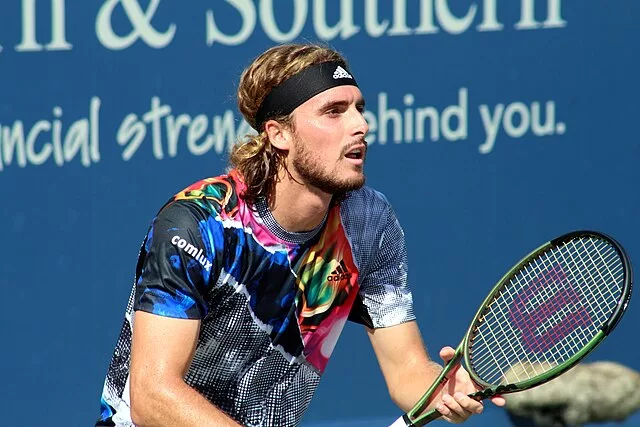The year is 2018. Greek 20-year-old, Stefanos Tsitsipas, has won the NextGen Finals, the tournament for breakout tennis stars and a promising sign of things to come. Just a year later he wins the ATP World Tour Finals, the highest accolade in tennis after a Grand Slam, to become the youngest winner of the championship since 2001. Eager anticipation begins to brew from the giants of the sport, tipping Tsitsipas to be the successor of men’s tennis and usher in the new era.
Four years after this triumph, in 2023, and Tsitsipas’ career paints a starkly different picture to the one many envisaged. No longer viewed as a threat to the throne of tennis in the way he once was and with his prospects of a slam diminishing, at twenty-five years old, he, and other players in a similar position such as Andrey Rublev and Alexander Zverev, have been supplanted by the ‘next generation’ of talent following them. Scrappy, unrefined, but defined by an insatiable hunger to win that outweighs all else, the next generation of teenagers and twenty-year-olds are still at the stage where inexperience is overshadowed by an obsession to prove themselves. They are also faster, possess unwavering courage on court and have a plethora of potential still to tap into. And they are now the players that are being heralded as the heirs to the tennis world.
The fact of the matter is that the optimal window for Tsitsipas to win a slam has come and gone. No longer a starlet himself, buoyed by dreams of slam wins that seemed in touching distance just four years ago, the harsh reality of the tennis world has set in and established that every year that he failed to meet the dream of a grand slam was a year closer it would be for someone younger. The problem doesn’t exclusively affect Tsitsipas; Eugenie Bouchard reached the Wimbledon finals aged twenty but has since declined in form and is now ranked outside the top 200. Madison Keys reached the 2017 US Open final aged twenty-two, having cracked the top fifty as an 18-year-old, but saw a stark drop in performance over the next few years, which she only saw end in 2023. Outliers like Djokovic and Williams who were winning titles in their thirties do exist, but the odds aren’t in most players’ favour.
Tsitsipas himself seems to have recognised his fading chances of achieving the dream that he’s worked his whole life for: “There was a gap roughly, between 2018 and 2020, before Carlos Alcaraz, Holger Rune and Jannik Sinner. Then all the spotlight was on me…Now the scene has changed, we’re not so young anymore. Young players have tremendous energy, thirst and no fear…A grand slam title and world number one? It’s something I think about a lot but it’s not everything”. His candid words acknowledge the uncertainty of his prospects, but are tinged with regret – the goals he has aspired to realise his whole life are dwindling out of sight.
Experiencing high levels of success at an early age followed by years of failing to live up to the hype aren’t coincidental; a combination of factors can play into this dreaded experience. The turbulent nature of junior tennis cannot be understated, a period where form fluctuates and both mental and physical strength are developing, making progress here an unreliable indicator of future success. Learning to acclimatise to the sporting scene is also highly challenging: perpetual travel and a consequent inability to settle down takes its toll, with many players citing burnout for the decline in their careers.
Injuries are commonplace too, as in the case of Hyeon Chung, who reached the 2018 Australian Open semis and was similarly touted for greatness before suffering unrelenting injury crises. Mental struggles play their part as well, especially when juggling the effects of personal issues, fame, and the insidious attitudes of the media with the pressures of meeting expectations. The result of this concoction of challenges can be a player who realises that their childhood entrenched destiny of winning tennis’ greatest accolades will go unfulfilled, a curse that has plagued many players and will afflict many more.
The tennis world is ruthless; junior players are constantly coming through the ranks to supplant players like Tsitsipas, much like he did as a twenty-year-old. Once players reach their early twenties, almost presciently they fulfil the cycle, becoming victims of a younger player that they once were and struggling to have the same impact that they once had. There’s still flickers of hope for Tsitsipas though. He is only 25 and has around a decade left of his career, copious chances to achieve his ambitions. He reached a slam final in 2023, exhibiting hope for deep runs. And recently, Thiem, Cilic and Halep have all reached the pinnacle of tennis at ages older than Tsitsipas. Tennis has a vicious cycle with its young players, but its curse can still be broken – whether Tsitsipas joins this illustrious list is dubious but not entirely out of the question.


